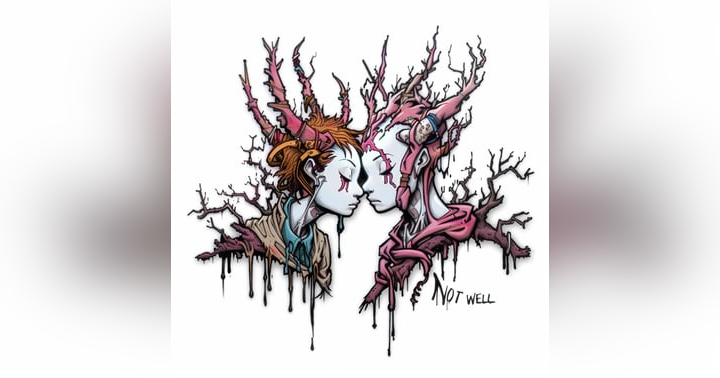"Beyond the Profile Picture: Unmasking Grindr's Impact on the LGBTQ+ Community

In a recent episode of our podcast, we delved deep into the multifaceted impact of Grindr on the LGBTQ+ community. Amid our exploration of how Grindr perpetuates detrimental practices and unrealistic standards, we received a provocative question from a listener. They asked why some users opt to block their faces on the platform. Our response, while forthright, underscores a harsh reality that many are hesitant to confront.
The practice of blocking faces on Grindr, albeit controversial, is emblematic of the broader issues we discussed. It's a defense mechanism—a way for individuals to navigate a platform that often values superficiality over genuine connection. Here's our unvarnished take:
-
Anonymity as Armor: Many users block their faces to protect their privacy and shield themselves from the judgment and discrimination that can be rampant on the app. This anonymity allows them to explore their identity and desires without fear of backlash or outing, especially in environments that are not LGBTQ+-friendly.
-
The Commodity of Physical Attraction: Grindr, with its emphasis on physical appearance, can pressure users to conform to specific beauty standards. By hiding their faces, some individuals sidestep the superficial judgments and focus on finding connections that surpass the shallow criteria of attractiveness imposed by the app.
-
Fear of Objectification and Fetishization: Particularly for people of color and transgender users, the decision to block their faces can be a protective measure against being fetishized or objectified. It's a stance against being reduced to a mere category of desire, challenging the pervasive culture of devaluation on the app.
-
Cultivating Mystery: On a different note, some users block their faces to maintain a sense of mystery and intrigue, believing it might increase their appeal or interest among other users. This strategy, however, speaks volumes about the game-playing and manipulation that can be part and parcel of online dating.
-
A Reflection of Self-esteem Issues: Unfortunately, for some, the decision to hide their identity stems from deep-seated insecurities and a fear of rejection. It's a poignant reminder of the destructive cycle of low self-esteem and validation seeking that platforms like Grindr can exacerbate.
In addressing this listener's question with brutal honesty, we confront a symptomatic issue of Grindr's culture. It's not just about anonymity; it's about the systemic pressures, the quest for acceptance, and the challenges of self-representation in a digital age where you're often reduced to a profile picture.
Our discussion is a call to action for both the users and the architects of such platforms. We advocate for a shift towards fostering environments that prioritize authenticity, respect, and deeper connections. By challenging the status quo and advocating for a more inclusive and respectful digital space, we can begin to dismantle the toxic patterns that currently prevail.




